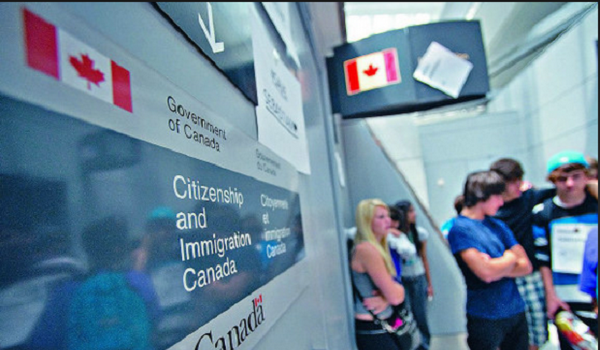Foreign students and temporary workers should not be forced out by the new immigration rules
In its effort to appease voters and address Canada’s housing crisis, Prime Minister Justin Trudeau’s Liberal government has made drastic cuts to immigration rates. But the implementation of this change fails to consider the impacts on international students and their families already in Canada on temporary permits.
Students like Niño.
Niño’s mother came to Canada in 2018 as a caregiver on a work permit. In 2021, when Nino turned 18, he joined her by enrolling at the University of Toronto to study anthropology and public policy. While his mother maintained her work permit, Niño as her dependent was able to register as an Ontario resident student and pay domestic tuition fees.
I met Niño in 2023 in my seminar course on Southeast Asia. He was one of my top students. I learned he was from the region of Mindanao in the Philippines that has seen intractable violence and devastating poverty for the better part of the last century.
Niño wants to use his Canadian education to help bring durable stability in Mindanao. He is part of a cultural workers’ collective in Mindanao where he collaborates with local artists, writers, and other like-minded individuals to heal communities fractured by conflict, neglect, and underdevelopment.
In 2023, I travelled to Mindanao for my PhD researching political violence in the Philippines. I chose Mindanao because in 2016, one of the two Canadians kidnapped and murdered by militants in the region was the father of a close friend. Niño connected me with local educators, peacebuilders, and organizations that helped me succeed in my academic journey, but now his education prospects are in jeopardy.
The result of the Liberals’ policy reversal is that Niño’s mother’s work permit was not renewed. She must leave Canada or face deportation. That means Niño no longer qualifies as an Ontario resident and must now pay international student tuition fees to complete his final year at U of T.
Concretely, his tuition increased tenfold from $6,100 to $61,720. Niño faces the real possibility that he must now leave while at the cusp of completing his education as a straight-A student. Out of desperation, he has started a GoFundMe page.
The reason I am so sympathetic to his plight is because 25 years ago I was in a similar situation.
My mother came to Canada to escape political persecution in China thanks to the generous policies of the Chrétien government. She was fortunate to qualify as a professional and skilled immigrant who scored enough points for both of us to be granted entry. I was so grateful to live in a free society, I enrolled in the Canadian Armed Forces after high school and obtained my education simultaneously through military service.
Since then, the conversation about immigration has become muddled.
The question of how many immigrants and international students we welcome to Canada should be a different conversation from the one we need to have about how we treat those who are already here.
The pathways for temporary workers and international students who have already invested in living in Canada should be streamlined. Demonstrated commitment to Canada through work or study should be given consideration and weighed against other criteria such as work experience or qualification requirements for applications of renewal or status change to permanent residency. This could be a lengthy reform to implement, but in the short term, we can offer longer-term or renewable work permits to reduce uncertainty and provide a smoother transition from temporary to permanent status.
Instead of reacting to fluctuating labour demands or shifting public opinion during election cycles, we should create a transparent and predictable system that allows people to plan their futures with confidence, free from the threat of sudden changes. Niño and his mother have a lot to lose — education and livelihood. They are just one example of how our leaders abdicate their responsibilities to the most vulnerable and precarious among us.
This article was first reported by The Star













